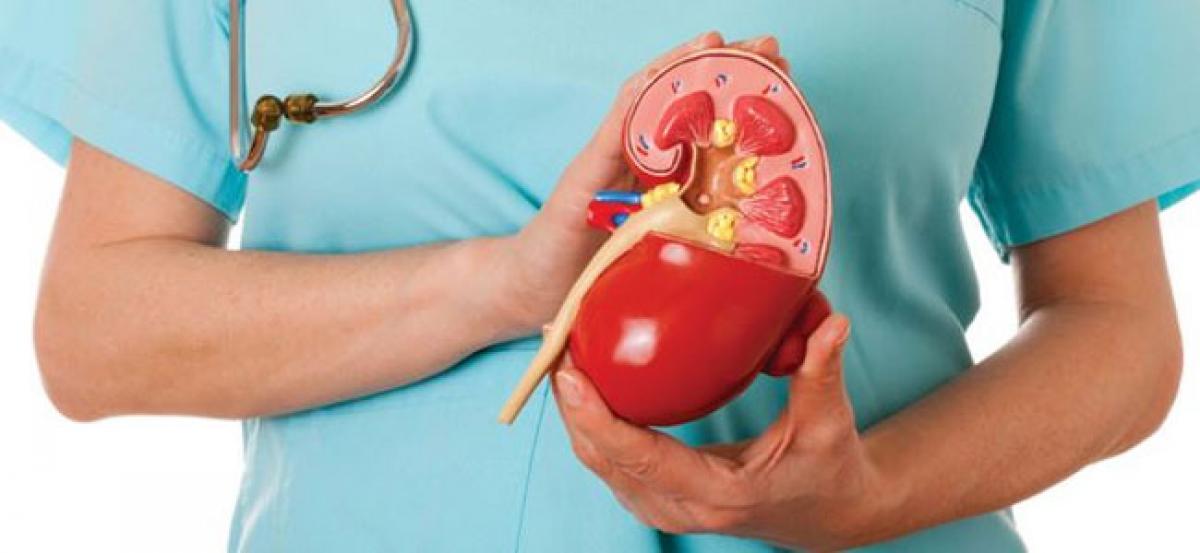Live
- Convert those starts: Hemp wants Bangladesh batters to score big in second Test vs West Indies
- OpenAI signs 1st MoU in South Korea to foster AI ecosystem
- Fire breaks out during rocket test at Japan's space centre
- Nigerian military kills more suspected terrorists in Lake Chad Basin airstrikes
- NABL signs pact for on-site testing of materials in construction projects
- Cantonment MLA Sri Ganesh Advocates for New RTO Office Amid Road Expansion Concerns
- UN humanitarian chief meets Sudan's Al-Burhan to address aid crisis
- Zimbabwean president calls for international support to resolve debt issues
- Judiciary Plays a Key Role in the Indian Constitution - Senior Civil Judge A. Sri Devi
- Karnataka BJP Stands Strong Against Waqf Board Misuse
Just In

Despite issuing order sanctioning a pension of Rs 2,500 per month to all affected patients having chronic kidney disease (CKD) in various stages like III, IV and V and those who are undergoing dialysis in government hospitals more than a month ago, non-release of guidelines by the State Health Department to district Health departments created unrest among patients who are undergoing treatment at v
Amaravati: Despite issuing order sanctioning a pension of Rs 2,500 per month to all affected patients having chronic kidney disease (CKD) in various stages like III, IV and V and those who are undergoing dialysis in government hospitals more than a month ago, non-release of guidelines by the State Health Department to district Health departments created unrest among patients who are undergoing treatment at various government hospitals.
Highlights:
- Chief Minister N Chandrababu Naidu had announced a monthly pension of Rs 2,500 per month to patients suffering from chronic kidney disease
- However, the non-release of guidelines by the State Health Department to district departments is causing concern for the patients who are undergoing treatment at various hospitals
- Though the patients are covered under Arogyasri scheme, other expenses like transport, food and accommodation has become a burden for poor patients
Though the kidney patients are getting dialysis treatment free of cost in government hospitals under Arogyasri scheme, but the other expenses like transport, food and accommodation has become a burden for poor patients.
After reviewing the complex problem of high prevalence of CKD in Uddanam area of Srikakulam district, Chief Minister N Chandrababu Naidu has announced a monthly pension of Rs 2,500 to all affected patients in the State having CKD stage-III, IV and V and those who are undergoing dialysis in various government hospitals across the state, followed by a GO No 418 Dt 20-7-2017, which estimated the total pension amount will be Rs 10-12 crore per annum.
It also directed that the amount should be borne from the funds of Labour department and the pension will be administered through Chandranna Bima Yojana Portal. It further said that the Health, Medical and Family Welfare Department which has the clinical capability should diagnose and recommend the cases for payment of pension.
Though the government directed to register the names of patients eligible for pensions under Chandranna Bima Yojana portal, no specific guidelines were issued by the Health and Medical department to the concerned district departments leading to delay in process.
Even the Labour Department portal was also not technically updated, where there is no information regarding the pension scheme for dialysis patients. When contacted Krishna district medical department officials, they are also unaware about the guidelines concerning to pension.
Despite of free dialysis care at government hospitals, the patients, generally who belongs to poor families must bear additional expenses like transport, food and accommodation. In Krishna district, the dialysis services are available in Government General Hospitals at Vijayawada and Machilipatnam.
Not only the patients from these districts, patients from other neighbouring districts are also undergoing dialysis in these hospitals, where they must visit the hospitals at least weekly twice.
According Nephro Plus, which is functioning as dialysis and kidney care provider for government hospitals in the State, on an average in Vijayawada government general hospital 20-25 patients are undergoing dialysis every day and in General Hospital at Machilipatnam district headquarter, 25-30 patients are undergoing dialysis every day.
In Guntur General Hospital, on an average 60-70 patients are undergoing dialysis every day. In Parvathipuram Government Hospital of Vizianagaram district about 16-20 patients, at Palakonda government hospital of Srikakulam district, 5-10 patients, at King George Hospital in Visakhapatnam about 25-30 patients are undergoing dialysis every day.
By T Sudhakar

© 2024 Hyderabad Media House Limited/The Hans India. All rights reserved. Powered by hocalwire.com







